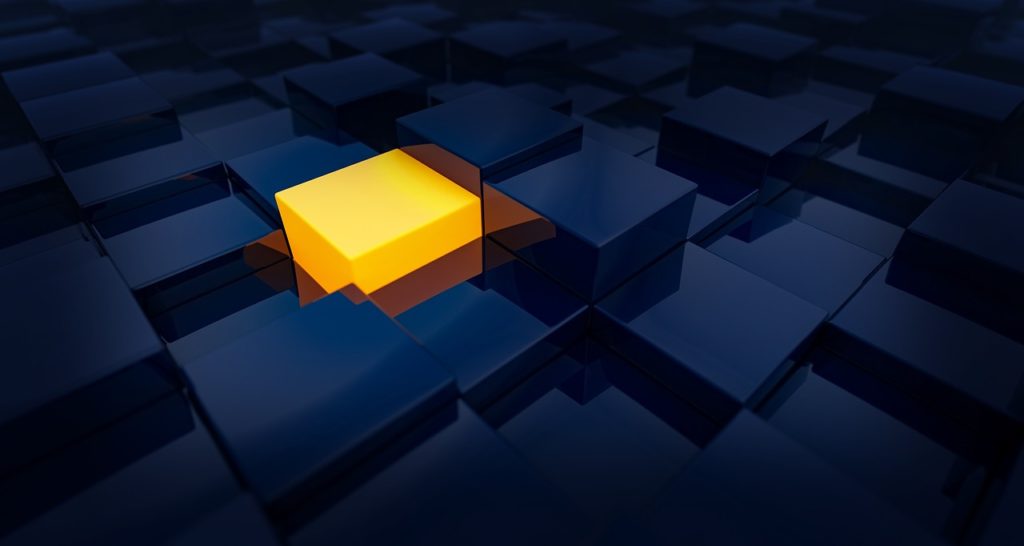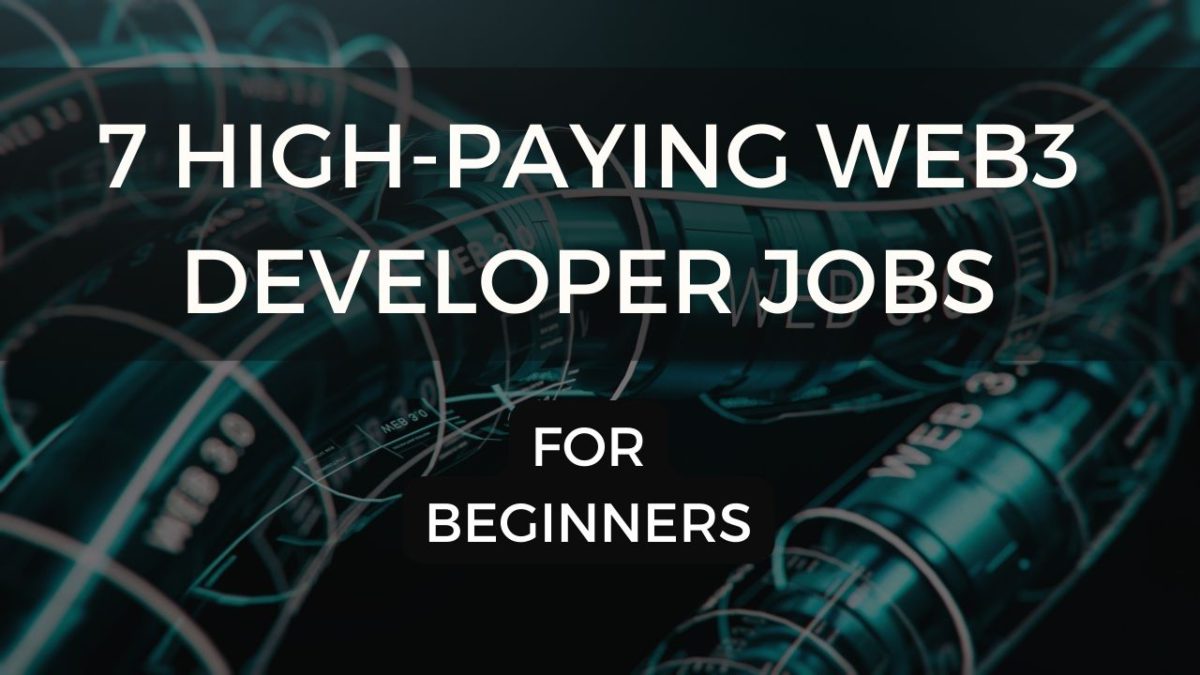Start Professional Career In Blockchain: Blockchain Developer Roadmap
The blockchain developer roadmap is a guide for anyone interested in starting a career in blockchain technology. This field is growing rapidly, with many opportunities available for those who are skilled in blockchain development. In this article, we will explore the essential steps you need to take to become a successful blockchain developer, including understanding the role, educational pathways, technical skills, gaining experience, and staying updated with industry trends.
Key Takeaways
- Blockchain developers create and maintain blockchain systems and applications.
- A strong background in computer science is helpful, but not strictly necessary to enter the field.
- Master programming languages like Java, C++, and Python for effective blockchain development.
- Hands-on experience through projects and internships is crucial for skill development.
- Continuous learning and community engagement will keep you updated in this fast-evolving industry.
Understanding the Role of a Blockchain Developer
Blockchain developers are essential in the tech world, focusing on creating and maintaining blockchain technology. They are the architects of the future, responsible for designing protocols and building smart contracts that help secure transactions across networks.
Core Blockchain Developer Responsibilities
Core blockchain developers focus on the foundational aspects of blockchain technology. Their main tasks include:
- Designing blockchain protocols and consensus mechanisms.
- Architecting and monitoring the network’s structure.
- Implementing various features and functionalities of the blockchain.
Blockchain Software Developer Tasks
On the other hand, blockchain software developers bridge the gap between blockchain technology and applications. Their responsibilities include:
- Developing APIs for seamless blockchain integration.
- Creating both the frontend and backend of decentralized applications (DApps).
- Writing and implementing smart contracts to automate processes.
Skills Required for Blockchain Developers
To excel as a blockchain developer, one must possess a mix of technical and soft skills. Key skills include:
- Proficiency in programming languages like JavaScript, Python, and Solidity.
- Strong understanding of data structures and algorithms.
- Knowledge of cryptography and security principles.
Gaining expertise in blockchain development opens doors to numerous career opportunities, especially as the demand for this technology continues to grow.
In summary, blockchain developers play a crucial role in shaping the future of technology by ensuring secure and efficient transaction processes. Their work not only impacts the tech industry but also influences various sectors like finance, healthcare, and supply chain management.
Educational Pathways to Blockchain Development
Importance of a Computer Science Degree
A computer science degree can be very helpful for those looking to become blockchain developers. It provides a strong foundation in programming, algorithms, and data structures, which are essential for understanding blockchain technology. While it’s not mandatory, having this degree can make you more competitive in the job market.
Recommended Training Programs
To enhance your skills, consider enrolling in training programs that focus on blockchain development. Here are some options:
- Online courses on platforms like Coursera or Udemy.
- Bootcamps that offer intensive training in blockchain technologies.
- Workshops that provide hands-on experience with blockchain tools.
Certifications to Boost Your Career
Certifications can help validate your skills and knowledge in blockchain. Some popular certifications include:
- IBM Blockchain Certification
- Certified Blockchain Developer
- Certified Blockchain Solution Architect (CBSA)
Gaining the right education and training is crucial for success in the blockchain field. Investing in your learning can open many doors in your career.
By following these educational pathways, you can build a solid foundation for a successful career in blockchain development. Remember, continuous learning is key in this fast-paced industry!
Essential Technical Skills for Blockchain Developers
To become a successful blockchain developer, you need to master several essential technical skills. These skills are crucial for building secure and efficient blockchain systems.
Programming Languages to Master
- Java: A versatile language used for various applications.
- C++: Known for its performance and control over system resources.
- Python: Great for beginners and widely used in blockchain projects.
Understanding Data Structures and Algorithms
Having a solid grasp of data structures is vital. Here are some key structures to know:
- Linked Lists: Useful for dynamic data storage.
- Binary Trees: Important for efficient data organization.
- Hashing: Essential for quick data retrieval.
Cryptography and Security Fundamentals
Cryptography is at the heart of blockchain technology. Key concepts include:
- Digital Signatures: Ensure authenticity and integrity of transactions.
- Hash Functions: Protect data by converting it into a fixed-size string.
- RSA Algorithm: A widely used method for secure data transmission.
Understanding these technical skills will help you navigate the complexities of blockchain development and prepare you for real-world challenges.
By focusing on these areas, you can build a strong foundation for your career in blockchain development.
Gaining Practical Experience in Blockchain
Gaining hands-on experience is crucial for anyone looking to become a successful blockchain developer. This practical exposure helps you apply your theoretical knowledge in real-world situations. Here are some effective ways to gain that experience:
Building Decentralized Applications (DApps)
- Start by creating your own DApps to understand the development process.
- Experiment with different blockchain platforms to see how they work.
- Collaborate with others on open-source projects to enhance your skills.
Writing and Testing Smart Contracts
- Learn to write smart contracts using languages like Solidity.
- Test your contracts thoroughly to ensure they function as intended.
- Use platforms like Ethereum to deploy and interact with your smart contracts.
Participating in Internships and Training Programs
- Look for internships that focus on blockchain technology.
- Join training programs that offer hands-on projects and mentorship.
- Engage with professionals in the field to gain insights and advice.
Gaining practical experience is not just about coding; it’s about understanding the entire blockchain ecosystem.
By following these steps, you can build a solid foundation in blockchain development and prepare yourself for a successful career in this exciting field. Remember, the more you practice, the better you will become!
Exploring Blockchain Platforms and Technologies
Introduction to Ethereum and DApps
Ethereum is one of the most important platforms in the blockchain world. It is an open-source, decentralized network that allows developers to create Decentralized Applications (DApps). These applications run on the blockchain, which means they are secure and do not rely on a single point of control. Ethereum’s versatility makes it a great starting point for anyone interested in blockchain development.
Learning Solidity for Smart Contracts
Solidity is the main programming language used for writing smart contracts on the Ethereum platform. Smart contracts are self-executing contracts with the terms of the agreement directly written into code. Here are some key points about Solidity:
- Statically typed: This means you need to declare the type of variables before using them.
- Influenced by JavaScript: If you know JavaScript, learning Solidity will be easier.
- Used for automation: Smart contracts automate processes without needing a third party.
Exploring Other Blockchain Platforms
While Ethereum is a great starting point, there are other platforms worth exploring:
- EOS: Known for its scalability and speed.
- Hyperledger: Focuses on enterprise solutions and private blockchains.
- Cardano: Emphasizes security and sustainability.
Understanding different blockchain platforms is essential for a successful career in blockchain development. Each platform has its unique features and use cases, which can help you choose the right one for your projects.
In summary, exploring various blockchain platforms and technologies is crucial for aspiring blockchain developers. Starting with Ethereum and learning about smart contracts through Solidity will provide a solid foundation. Additionally, familiarizing yourself with other platforms will broaden your skills and opportunities in the blockchain space.
Continuous Learning and Staying Updated
In the fast-paced world of blockchain, staying updated is essential for success. Here are some effective ways to keep your knowledge fresh:
Engaging with the Blockchain Community
- Join online forums and groups to connect with other developers.
- Participate in discussions on platforms like Reddit and Discord.
- Follow industry leaders on social media for real-time updates.
Attending Conferences and Webinars
- Attend both virtual and in-person events to learn from experts.
- Network with professionals and gain insights into new trends.
- Look for events that focus on blockchain innovations and technologies.
Keeping Up with Industry Trends
- Subscribe to newsletters and blogs that cover blockchain news.
- Take online courses to learn about the latest tools and practices.
- Contribute to open-source projects to gain hands-on experience.
Staying committed to learning not only builds your expertise but also positions you as a leader in blockchain innovation.
By following these steps, you can ensure that you remain adaptable and ready to tackle the challenges in this ever-evolving field. Surviving in the blockchain world requires continuous effort and engagement with the latest resources, courses, and communities to fuel your learning journey!
Career Opportunities and Advancement in Blockchain
The blockchain industry is growing rapidly, creating many exciting job opportunities. As more companies adopt blockchain technology, the demand for skilled professionals is increasing. Here are some key areas where you can find career opportunities:
Job Roles and Responsibilities
- Blockchain Developer: Responsible for building and maintaining blockchain systems.
- Blockchain Architect: Designs the architecture of blockchain solutions.
- Crypto Community Manager: Engages with users and manages community relations.
Networking and Professional Growth
- Attend industry events and meetups to connect with other professionals.
- Join online forums and communities to share knowledge and learn from others.
- Utilize platforms like LinkedIn to network with industry leaders.
Future Prospects in Blockchain Development
The future looks bright for blockchain professionals. With the technology expected to be integrated across various sectors by 2024, the need for skilled developers will only grow. Now is the perfect time to start your career in blockchain!
| Job Role | Average Salary (USD) | Growth Rate (%) |
|---|---|---|
| Blockchain Developer | $120,000 | 30% |
| Blockchain Architect | $150,000 | 25% |
| Crypto Community Manager | $80,000 | 20% |
The blockchain sector is not just a trend; it’s a long-term player in technology. Companies are actively seeking professionals with blockchain skills, making it a great time to enter this field.
By focusing on developing your skills and gaining experience, you can position yourself for success in this exciting industry.
Remember, the right skills and connections can open doors to amazing opportunities in blockchain!
Conclusion
Becoming a Blockchain Developer is a rewarding journey filled with challenges and opportunities. By learning the necessary skills, gaining real-world experience, and keeping up with the latest trends, you can place yourself at the forefront of this exciting field. As blockchain technology continues to expand and transform various industries, the need for skilled developers will only grow. This means many job opportunities await those ready to dive into the world of blockchain. So, take the first step, prepare yourself, and get ready to achieve your career dreams in Blockchain Development!
Frequently Asked Questions
What does a Blockchain Developer do?
A Blockchain Developer builds and maintains blockchain systems. They create smart contracts and develop decentralized applications (DApps). They also work on blockchain protocols and ensure the network’s security.
Do I need a degree to become a Blockchain Developer?
While a degree in Computer Science or a related field can be helpful, it’s not strictly necessary. Many successful Blockchain Developers are self-taught or have gone through specific training programs.
What programming languages should I learn for Blockchain Development?
It’s important to learn languages like JavaScript, Python, and Solidity. These languages are commonly used in blockchain development and help you create smart contracts and DApps.
How can I gain practical experience in Blockchain?
You can gain practical experience by working on personal projects, participating in internships, or contributing to open-source blockchain projects. Building your own DApps is also a great way to learn.
Are there certifications for Blockchain Developers?
Yes, there are several certifications available, such as the Certified Blockchain Developer and IBM Blockchain Certification. These can help validate your skills and improve your job prospects.
What are the career opportunities in Blockchain Development?
The career opportunities in blockchain are growing rapidly. You can work in various sectors like finance, supply chain, and healthcare. Roles include Blockchain Developer, Blockchain Architect, and more.
Stay informed with daily updates from Blockchain Magazine on Google News. Click here to follow us and mark as favorite: [Blockchain Magazine on Google News].
Get Blockchain Insights In Inbox
Stay ahead of the curve with expert analysis and market updates.
latest from tech
Disclaimer: Any post shared by a third-party agency are sponsored and Blockchain Magazine has no views on any such posts. The views and opinions expressed in this post are those of the clients and do not necessarily reflect the official policy or position of Blockchain Magazine. The information provided in this post is for informational purposes only and should not be considered as financial, investment, or professional advice. Blockchain Magazine does not endorse or promote any specific products, services, or companies mentioned in this posts. Readers are encouraged to conduct their own research and consult with a qualified professional before making any financial decisions. The featured image used is just a creative depiction of the title and it does not intend to hurt sentiments of any person or institution. If it hurts anyone sentiments, please do not hesitate to reach out to Blockchain Magazine.

 Bitcoin
Bitcoin  Ethereum
Ethereum  XRP
XRP  Tether
Tether  Solana
Solana  USDC
USDC  Dogecoin
Dogecoin  Cardano
Cardano  Lido Staked Ether
Lido Staked Ether  TRON
TRON  Wrapped Bitcoin
Wrapped Bitcoin  Chainlink
Chainlink  Wrapped stETH
Wrapped stETH  Avalanche
Avalanche  Sui
Sui  Stellar
Stellar  Litecoin
Litecoin  Toncoin
Toncoin  Shiba Inu
Shiba Inu  LEO Token
LEO Token  Hedera
Hedera  USDS
USDS  Hyperliquid
Hyperliquid  Polkadot
Polkadot  WETH
WETH  MANTRA
MANTRA  Bitcoin Cash
Bitcoin Cash  Bitget Token
Bitget Token  Ethena USDe
Ethena USDe  Wrapped eETH
Wrapped eETH  Uniswap
Uniswap  Monero
Monero  NEAR Protocol
NEAR Protocol  Pepe
Pepe  WhiteBIT Coin
WhiteBIT Coin  Bittensor
Bittensor  Ondo
Ondo  Aave
Aave  Aptos
Aptos  Dai
Dai  Internet Computer
Internet Computer  Official Trump
Official Trump  Mantle
Mantle  Ethereum Classic
Ethereum Classic  Tokenize Xchange
Tokenize Xchange  OKB
OKB  Gate
Gate  sUSDS
sUSDS  Coinbase Wrapped BTC
Coinbase Wrapped BTC 




